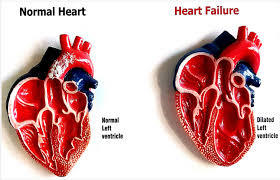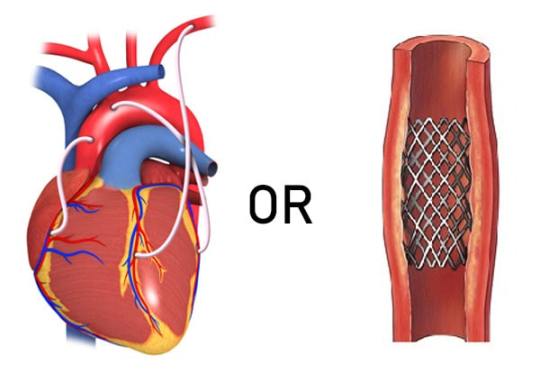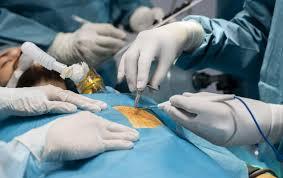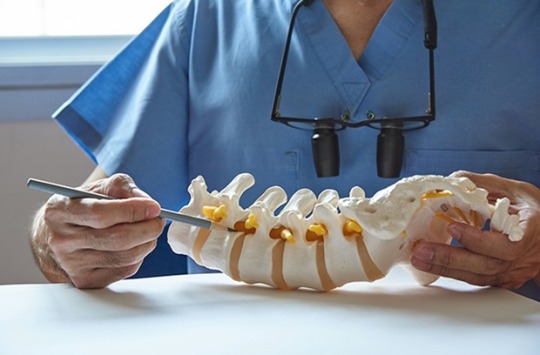Don't wanna be here? Send us removal request.
Text
Life After Liver Transplant: Tips for a Smooth Recovery Journey

Undergoing a liver transplant is a profound milestone, truly offering a second chance at life after a liver transplant. This incredible journey, however, doesn't end in the operating room; it's the beginning of a new chapter filled with hope, unique challenges, and necessary adjustments. This blog post will guide you through the vital recovery after liver transplant and provide essential tips for navigating a healthy, fulfilling new life.
The Immediate Recovery Phase
Following your liver transplant, expect an initial hospital stay, typically 1-2 weeks or longer, often beginning in the ICU. Here, our team closely monitors your vital signs, liver function, and any early signs of rejection. While pain and fatigue are common, patients usually begin walking and eating light meals within a few days. Critical monitoring through regular blood work and scans is paramount to assess your body's response to the new liver and detect rejection early. Immunosuppressant medications are initiated immediately to prevent organ rejection.
Essential Lifestyle Adjustments Post-Op
A smooth, successful recovery after liver transplant hinges on diligent long-term care and essential lifestyle adjustments.
Mastering Medication Adherence: Preventing Rejection
Your immune system naturally views the new liver as foreign, making anti-rejection medications (immunosuppressants) vital. These drugs suppress your immune response, preventing your body from attacking the transplanted organ. They must be taken precisely as prescribed, every single day, for the rest of your life. Missing doses can lead to rejection, posing a serious threat to your new liver.
To optimize effectiveness:
Attend Blood Work: Routine blood tests detect early signs of rejection before symptoms appear, allowing for timely medication adjustments.
Communicate with Your Doctor: Inform your care team about all medications, vitamins, or supplements you take, as some can interfere with immunosuppressants.
Avoid Grapefruit: Absolutely avoid grapefruit and its juice, as they can negatively interact with your anti-rejection medicines.
Report Side Effects: If you experience unpleasant side effects, notify your doctor immediately, but never alter your medication routine without their approval.
Signs of Rejection/Infection: The highest risk for rejection is typically within 3 to 6 months post-transplant. Watch for symptoms like fatigue, abdominal pain, fever, jaundice, dark urine, or light stools. Also, be vigilant for signs of infection (chills, cough, etc.). Contact your doctor immediately if any occur.
Nourishing Your New Liver: Diet and Activity
Adopt a balanced, liver-friendly diet rich in fruits, vegetables, lean proteins, and whole grains. Limit salt, unhealthy fats, and refined sugars. Crucially, completely abstain from alcohol, even in cooking, as it can damage your new liver. Regular, gentle exercise, starting with walking as permitted by your doctor, helps improve circulation and energy. Listen to your body and prioritize rest.
Protecting Against Infections and Complications
Immunosuppressants lower your immune system, increasing infection risk. Practice strict hygiene, avoid crowds, and sick individuals. Stay up-to-date on vaccinations, but generally avoid "live" vaccines without consulting your doctor. Regular cancer screenings are also vital, as long-term immunosuppressant use can increase cancer risk. Discuss any travel plans with your care team in advance, especially for international travel, to ensure necessary precautions.
Emotional Well-being and Support
The emotional journey, life after a liver transplant, can be complex. It's normal to experience a range of emotions, including anxiety, depression, or fear of rejection. Family members and caregivers also navigate their own emotional adjustments. Seeking support from groups, counseling, or connecting with other transplant recipients can be profoundly beneficial for both patients and their loved ones. Prioritizing emotional well-being is as important as physical recovery.
Return to Normalcy and Future Outlook
While recovery after liver transplant demands patience, many recipients gradually regain strength and independence. Most can return to work, travel, and enjoy everyday activities, embracing a full and active life. With modern medical techniques and diligent post-transplant care, a significant majority of patients live for many years, even decades, post-transplant. At Kauvery Hospitals, we are dedicated to supporting you through every phase of this remarkable journey. Our expert team, including a highly experienced liver transplant surgeon in Bangalore, is committed to providing advanced, empathetic care, helping you achieve a healthier, fulfilling future.
0 notes
Text
Fatty Liver vs. Healthy Liver: What’s the Difference?

The liver is one of the most essential organs in the body, responsible for filtering toxins, producing proteins, and storing energy. It works tirelessly to keep your body in balance. However, when the liver becomes overloaded with fat, it can result in fatty liver disease, which can lead to serious health complications. Understanding the difference between a fatty liver vs. healthy liver is crucial to maintaining overall well-being.
This blog will explore what a healthy liver looks like, what causes fatty liver disease, and how you can manage and prevent it.
What is a Healthy Liver?
A healthy liver is an efficient organ that processes everything from nutrients to medications, regulates blood sugar, and produces vital proteins like albumin and clotting factors. It also plays a key role in metabolizing fats, filtering toxins from the blood, and storing vitamins and minerals.
Here are some characteristics of a healthy liver:
Smooth, firm texture: A healthy liver has a smooth texture and is free from excessive fat accumulation.
Efficient detoxification: It processes toxins from food, drinks, and other substances, filtering out harmful compounds.
Proper bile production: It produces bile, which helps with digestion, especially the breakdown of fats.
What Causes Fatty Liver?
Fatty liver occurs when excess fat accumulates in the liver cells. If left untreated, this can lead to liver inflammation, scarring (cirrhosis), or even liver failure. There are two primary types of fatty liver disease:
Non-Alcoholic Fatty Liver Disease (NAFLD): This is the most common type, which isn’t related to alcohol consumption. It’s often associated with obesity, type 2 diabetes, and poor diet.
Alcoholic Fatty Liver Disease (AFLD): This occurs due to excessive alcohol consumption over time.
Some common causes of fatty liver include:
Obesity or overweight
High-fat or sugary diet
Sedentary lifestyle
Insulin resistance and type 2 diabetes
Chronic alcohol use
Genetics and family history
Fatty Liver vs. Healthy Liver: Key Differences
1. Fat Accumulation
The most obvious difference between a fatty liver vs. healthy liver is the amount of fat in the organ. In a healthy liver, fat comprises no more than 5–10% of the liver's weight. However, in fatty liver disease, fat makes up a higher percentage of the liver's weight, impairing its ability to function.
2. Liver Function
A healthy liver works efficiently to process nutrients and detoxify the body. In contrast, a fatty liver may begin to struggle with detoxification and fat metabolism. This can result in sluggish digestion, fatigue, and even the accumulation of toxins in the body.
3. Inflammation and Damage
While a healthy liver remains inflammation-free, fatty liver disease, particularly if it progresses, can lead to liver inflammation (steatohepatitis). This inflammation can cause liver cells to become damaged over time, potentially leading to cirrhosis or liver failure.
4. Symptoms and Complications
A healthy liver typically shows no outward signs or symptoms of distress. However, with fatty liver, especially in advanced stages, symptoms like fatigue, jaundice (yellowing of the skin and eyes), abdominal discomfort, and swelling may arise. In severe cases, cirrhosis or liver failure may develop, which can be life-threatening.
How to Reduce Fatty Liver: Natural Approaches
If you’ve been diagnosed with fatty liver, it’s not too late to take steps to reverse the damage. How to reduce fatty liver naturally involves making changes to your lifestyle:
✔️ Eat a Balanced Diet
Focus on a diet rich in whole grains, fresh fruits and vegetables, lean proteins, and healthy fats like those found in olive oil and nuts. Reducing processed foods, sugary drinks, and trans fats can make a significant difference.
✔️ Exercise Regularly
Aim for at least 150 minutes of moderate-intensity exercise each week, such as walking, swimming, or cycling. Regular exercise helps reduce body fat and improve liver function.
✔️ Maintain a Healthy Weight
Losing 5–10% of your body weight can reduce fat in the liver and improve overall liver function. Always aim for gradual weight loss, as rapid weight loss can worsen liver conditions.
✔️ Limit Alcohol Intake
For those with alcoholic fatty liver, the most important step is to quit drinking. Even for non-alcoholic fatty liver, it’s advisable to limit alcohol consumption to prevent further strain on the liver.
✔️ Manage Blood Sugar and Cholesterol
If you have diabetes or high cholesterol, it’s crucial to keep these conditions under control. Medication, a proper diet, and exercise can help regulate blood sugar and cholesterol levels.
Seeking Professional Care
If you’re concerned about fatty liver or already have a diagnosis, seeking expert guidance is essential. Multispeciality hospitals in Electronic City offer comprehensive care for liver health, including liver function tests, imaging, and consultation with hepatologists. Facilities like [Insert Hospital Name, e.g., "XYZ Multispeciality Hospital"] in Electronic City provide tailored treatment options for managing fatty liver, along with advice on lifestyle changes to help reduce fat buildup in the liver.
Final Thoughts
The key to managing fatty liver vs. healthy liver is early detection and lifestyle modification. By maintaining a healthy weight, eating a balanced diet, exercising regularly, and avoiding alcohol, you can prevent or even reverse the damage caused by fatty liver disease. If you’re unsure about your liver health, consult with specialists at a multispeciality hospital in Electronic City to get the right diagnosis and treatment plan
0 notes
Text
Bangalore’s Best Heart Hospitals: Cutting-Edge Care for Your Heart
Kauvery Hospital, a premier heart hospital in Bangalore, offers cutting-edge care for a wide range of cardiovascular conditions. With advanced diagnostic tools, state-of-the-art facilities, and a team of expert cardiologists, the hospital provides personalized heart care to ensure the best outcomes for patients.
0 notes
Text
Effective Ways to Manage Joint Pain: Tips for a Pain-Free Life

Joint pain is a common issue that affects people of all ages. Whether due to aging, injury, arthritis, or other medical conditions, persistent joint pain can limit mobility and affect the overall quality of life. Fortunately, there are several effective ways to manage and control joint pain. If you are wondering how to manage joint pain effectively, here are some proven strategies to help you lead a pain-free life.
1. Maintain a Healthy Weight
Excess weight puts additional stress on your joints, especially the knees, hips, and lower back. Losing even a small amount of weight can significantly reduce pain and improve mobility. Maintaining a balanced diet and engaging in regular physical activity can help you achieve a healthy weight and alleviate joint stress.
2. Stay Active with Low-Impact Exercises
Engaging in regular exercise is crucial for joint health. Low-impact activities such as swimming, cycling, and yoga help strengthen muscles around the joints, improve flexibility, and reduce stiffness. If you are wondering how to control joint pain, incorporating daily movement into your routine can make a significant difference.
3. Follow a Joint-Friendly Diet
A well-balanced diet rich in anti-inflammatory foods can help manage joint pain. Include foods high in omega-3 fatty acids (such as salmon and walnuts), antioxidants (such as berries and leafy greens), and vitamin D (such as dairy and fortified cereals) to support joint health.
4. Apply Hot and Cold Therapy
Alternating between heat and cold therapy can provide relief from joint pain. Heat therapy helps relax muscles and improve blood flow, while cold therapy reduces inflammation and numbs sharp pain. You can use heating pads, warm baths, ice packs, or cold compresses to soothe aching joints.
5. Consider Physical Therapy
Physical therapy can be an effective way to strengthen muscles, improve flexibility, and enhance joint function. A trained therapist can guide you through exercises that target specific problem areas, ensuring long-term relief from joint pain.
6. Use Joint Support Devices
Wearing braces, wraps, or using walking aids can help reduce strain on painful joints. These devices provide stability and support, preventing further damage and making daily movements easier.
7. Get Sufficient Rest and Sleep
Adequate rest is essential for joint recovery. Poor sleep quality can worsen inflammation and pain. Maintain a regular sleep schedule, invest in a comfortable mattress, and practice relaxation techniques to ensure restful sleep.
8. Seek Medical Advice
If joint pain persists despite home remedies and lifestyle changes, it is essential to consult a healthcare professional. Visiting an orthopedic hospital in Bangalore can help you receive expert diagnosis and treatment options, including medications, physical therapy, or surgical interventions if necessary.
Conclusion
Joint pain can be challenging, but with the right approach, it is possible to manage and control joint pain effectively. By maintaining a healthy weight, staying active, eating a nutritious diet, and seeking professional medical advice when needed, you can enjoy a pain-free life. If your joint pain is severe or chronic, consider visiting an orthopedic hospital in Bangalore for specialized care and treatment.
0 notes
Text
Healthcare Excellence in Electronic City: Where Quality Meets Care
Kauvery Hospital in Electronic City delivers healthcare excellence, combining top-quality treatments with compassionate care. With advanced technology and expert professionals, we are committed to your well-being at every stage of your recovery.
0 notes
Text
10 Simple Lifestyle Changes to Prevent High Blood Pressure

High blood pressure, or hypertension, is a common condition that can have serious long-term effects on your heart, kidneys, and overall health. Often referred to as the "silent killer," high blood pressure doesn’t usually show obvious symptoms, making it even more dangerous. However, the good news is that high blood pressure prevention is possible with simple lifestyle changes. By making these changes, you can effectively reduce your risk of hypertension and maintain a healthy blood pressure level.
In this blog, we’ll discuss 10 straightforward and actionable ways to lower your risk and improve your cardiovascular health. If you’re looking for guidance on how to control high BP, these steps will get you on the right track. And if you're in Bangalore, Kauvery Hospital in Marathahalli offers excellent resources to help you manage your blood pressure effectively.
1. Adopt a Heart-Healthy Diet
The food you eat has a significant impact on your blood pressure. A heart-healthy diet rich in fruits, vegetables, whole grains, lean proteins, and healthy fats can help prevent high blood pressure. The DASH (Dietary Approaches to Stop Hypertension) diet is specifically designed to help lower blood pressure. This diet emphasizes reducing sodium intake while increasing potassium-rich foods like bananas, spinach, and potatoes.
Tip: Include plenty of potassium-rich foods, such as leafy greens, avocados, and tomatoes, which help balance the negative effects of sodium.
2. Reduce Sodium Intake
One of the most effective high blood pressure prevention strategies is reducing sodium in your diet. Excessive sodium can lead to fluid retention, causing your blood vessels to constrict and raising your blood pressure. Aim to limit sodium intake to less than 2,300 milligrams per day, or ideally, around 1,500 milligrams for optimal health.
Tip: Avoid processed foods like canned soups, frozen meals, and snacks, as these are often high in hidden sodium. Instead, focus on fresh, whole foods and season with herbs and spices instead of salt.
3. Exercise Regularly
Regular physical activity strengthens the heart, making it more efficient at pumping blood and reducing pressure on the arteries. Consistent exercise helps maintain a healthy weight, which is crucial for preventing high blood pressure. Aim for at least 30 minutes of moderate-intensity exercise most days of the week.
Tip: Activities like walking, cycling, swimming, and even gardening can all help maintain healthy blood pressure levels. If you’re new to exercise, start slow and gradually increase your activity level.
4. Maintain a Healthy Weight
Being overweight or obese is one of the most significant risk factors for developing high blood pressure. Carrying excess weight puts more strain on your heart and blood vessels. Losing even a small amount of weight can help lower your blood pressure and reduce the risk of hypertension.
Tip: Combining a healthy diet with regular exercise is the most effective way to achieve and maintain a healthy weight.
5. Limit Alcohol Consumption
Excessive alcohol intake can raise blood pressure and interfere with your body’s ability to regulate blood pressure effectively. The key is moderation. For most people, this means limiting alcohol to no more than one drink per day for women and two drinks per day for men.
Tip: If you drink, try to alternate alcoholic beverages with water to stay hydrated and avoid overconsumption.
6. Quit Smoking
Smoking is not only harmful to your lungs, but it also damages your blood vessels and raises your blood pressure. Each cigarette you smoke temporarily raises your blood pressure, and over time, this constant strain can lead to permanent hypertension.
Tip: If you're struggling to quit smoking, consider reaching out to your healthcare provider for guidance or programs designed to help you quit. The benefits for both your heart and overall health will be immediate.
7. Manage Stress
Chronic stress can contribute to long-term high blood pressure. Stress activates your body’s "fight or flight" response, causing temporary spikes in blood pressure. Over time, continuous stress can damage your cardiovascular system. Learning to manage stress effectively is an essential part of how to control high BP.
Tip: Practice relaxation techniques such as deep breathing, meditation, yoga, or mindfulness. Finding healthy ways to cope with stress, such as regular exercise or spending time with loved ones, can have a profound impact on your blood pressure.
8. Get Enough Sleep
Lack of quality sleep can contribute to elevated blood pressure. Studies have shown that poor sleep or inadequate sleep can increase your risk of developing hypertension. Aim for 7-9 hours of sleep per night to help your body rest and recover.
Tip: Create a calming bedtime routine, avoid caffeine late in the day, and try to keep a consistent sleep schedule for better sleep quality.
9. Monitor Your Blood Pressure Regularly
One of the best ways to prevent high blood pressure is to track it regularly, especially if you have a family history of hypertension or other risk factors. Regular monitoring can help you stay on top of any changes in your blood pressure and allow you to take action early if needed.
Tip: Consider investing in a home blood pressure monitor to check your levels regularly. If you’re unsure of how to measure your blood pressure properly, consult your doctor or nurse for guidance.
10. Consult a Doctor for Regular Check-ups
Even if you feel fine, regular check-ups are crucial in preventing high blood pressure. A healthcare professional can monitor your blood pressure, assess your risk factors, and guide you on the best lifestyle changes. If you’re in Bangalore, Kauvery Hospital Marathahalli provides comprehensive screenings and expert advice on managing blood pressure.
Tip: During your check-up, ask your doctor about your blood pressure readings and what steps you can take to lower your risk. If you are diagnosed with hypertension, they can work with you on a treatment plan that may include medication, lifestyle changes, or both.
Conclusion
High blood pressure prevention doesn’t require drastic changes or expensive treatments. By adopting these 10 simple lifestyle changes, you can take control of your blood pressure and reduce your risk of heart disease, stroke, and other complications. Whether it's eating a heart-healthy diet, managing stress, or staying active, each small change can make a significant difference in your overall health.
If you’re concerned about your blood pressure or need help creating a plan for how to control high BP, don’t hesitate to consult a healthcare professional. Kauvery Hospital in Marathahalli, Bangalore offers expert cardiovascular care and blood pressure management services that can guide you toward a healthier future. Remember, by making these small adjustments today, you can enjoy a healthier heart and a longer, more vibrant life.
0 notes
Text
10 Simple Ways to Improve Your Gut Health for Better Digestion

Gut health is a crucial, yet often overlooked, aspect of overall well-being. The digestive system, home to trillions of bacteria, plays an essential role in digesting food, absorbing nutrients, and even supporting the immune system. A healthy gut not only helps with digestion but can also affect your mood, energy levels, and overall health. Unfortunately, factors like poor diet, stress, and lack of sleep can upset this delicate balance, leading to digestive discomfort and other health issues.
In this blog, we’ll explore 10 simple ways to improve gut health for better digestion, from including the best foods for gut health in your diet to adopting healthy lifestyle habits. Whether you’re looking to reduce bloating, improve nutrient absorption, or just feel better overall, these tips can help you on your way to a healthier gut.
1. Eat More Fiber-Rich Foods
Fiber is one of the most important components of a gut health diet. It helps keep your digestive system running smoothly by promoting regular bowel movements and feeding beneficial gut bacteria. Fiber-rich foods include fruits, vegetables, whole grains, and legumes.
Best Foods for Gut Health: Apples, berries, broccoli, oats, lentils, and chia seeds are excellent sources of fiber. They not only help in digestion but also improve the diversity of beneficial gut bacteria, which is essential for optimal gut function.
2. Include Probiotics in Your Diet
Probiotics are live bacteria that are beneficial for your gut. They help replenish and maintain the balance of good bacteria in your digestive system, which can be disrupted by factors like stress or antibiotic use.
Best Foods for Gut Health: Fermented foods like yogurt, kefir, sauerkraut, kimchi, and kombucha are rich in probiotics. Including these in your daily diet can boost your gut health and support better digestion.
3. Stay Hydrated
Drinking enough water is essential for maintaining good gut health. Water helps break down food so your body can absorb nutrients more effectively and also prevents constipation by softening stool.
Tip: Aim for at least 8 glasses of water per day, but this can vary depending on factors like physical activity levels and climate. Adding a slice of lemon to your water can further support digestion.
4. Reduce Processed Foods and Sugar Intake
Highly processed foods, sugary snacks, and refined carbohydrates can negatively impact your gut health by promoting the growth of harmful bacteria and yeast. A high-sugar diet is linked to inflammation and can contribute to conditions like irritable bowel syndrome (IBS) and leaky gut.
Tip: Opt for whole foods instead, and replace sugary snacks with healthier options like nuts, seeds, or fresh fruit. The more natural and unprocessed your food, the better it is for your digestive health.
5. Manage Your Stress Levels
Chronic stress can wreak havoc on your gut. It affects the balance of gut bacteria, slows digestion, and can lead to conditions like acid reflux, bloating, and IBS. Managing stress is crucial for maintaining a healthy gut.
Tip: Practice mindfulness, meditation, deep breathing exercises, or yoga to reduce stress. Even a daily walk or spending time in nature can help relax your mind and improve digestion.
6. Eat More Prebiotics
While probiotics are beneficial bacteria, prebiotics are the foods that feed them. Prebiotic-rich foods help stimulate the growth of good bacteria in your gut, further enhancing your digestive health.
Best Foods for Gut Health: Garlic, onions, asparagus, bananas, and leeks are excellent sources of prebiotics. They nourish the beneficial bacteria in your gut and support overall digestive health.
7. Get Enough Sleep
Your gut health and sleep are closely linked. Poor sleep can alter the composition of gut bacteria, potentially leading to digestive issues and inflammation. Additionally, when you're sleep-deprived, it can negatively affect the production of certain hormones that regulate appetite and digestion.
Tip: Aim for 7-9 hours of sleep each night. Stick to a consistent sleep schedule, limit screen time before bed, and create a relaxing bedtime routine to improve sleep quality.
8. Limit Alcohol Consumption
Excessive alcohol intake can disrupt the balance of good and bad bacteria in your gut and lead to inflammation. Chronic alcohol consumption can also harm the lining of your intestines, leading to digestive problems like leaky gut or bloating.
Tip: If you choose to drink, do so in moderation. The key is balance, so try to limit your alcohol intake and drink plenty of water alongside alcoholic beverages.
9. Exercise Regularly
Physical activity plays a key role in maintaining a healthy gut. Regular exercise helps promote the movement of food through your digestive system, reducing the risk of constipation and improving overall digestion. It can also help increase the diversity of gut bacteria, which is important for good health.
Tip: Aim for at least 30 minutes of moderate exercise, such as walking, swimming, or cycling, most days of the week. Yoga and Pilates can also be excellent choices for digestive health.
10. Consult a Professional for Gut Health Screenings
If you’re experiencing persistent digestive issues like bloating, gas, constipation, or diarrhea, it may be time to consult a healthcare provider. A gut health diet can only do so much, and sometimes medical intervention is necessary. Kauvery Hospital in Marathahalli, Bangalore offers comprehensive cardiac health screening and specialized tests for digestive issues that may be affecting your gut health.
A doctor can run tests to determine if there are underlying issues like food intolerances, bacterial overgrowth, or more serious conditions like inflammatory bowel disease (IBD). With proper treatment and guidance, you can manage digestive health issues more effectively.
Conclusion
Improving your gut health doesn’t require drastic changes; small, consistent adjustments can lead to significant improvements in digestion and overall well-being. By focusing on a gut health diet, staying hydrated, managing stress, and incorporating regular exercise, you can create an environment that supports the growth of beneficial gut bacteria and promotes healthy digestion.
If you’re looking for professional guidance or specific screenings for digestive health issues, Kauvery Hospital in Marathahalli, Bangalore provides a range of diagnostic services to help you take control of your gut health. Remember, a healthy gut is the foundation for a healthy body, so take the time to nurture it, and the benefits will extend far beyond digestion.
0 notes
Text
How to Choose the Right Health Check Package for Your Needs

In today’s world, maintaining good health is more important than ever. Regular health check-ups are crucial for detecting potential issues early and ensuring that you stay on top of your well-being. With a wide range of health check-up packages in Bangalore and other cities available, choosing the right one for your specific needs can be overwhelming. The key is to understand your health status, risk factors, and the type of tests that are most relevant to you. In this blog, we will guide you through how to choose a health check that best suits your needs, helping you make an informed decision for a healthier future.
Why Are Health Check Packages Important?
Health check packages are designed to offer a comprehensive evaluation of your health status, often at an affordable bundled price. They typically include various screenings and tests to assess different aspects of your health—ranging from blood pressure and cholesterol levels to organ function and specific disease screenings.
Regular health check-ups are essential for:
Early detection of health problems: Many health conditions like high blood pressure, diabetes, and cholesterol abnormalities often have no visible symptoms in the early stages. A health check-up can identify these issues before they develop into serious conditions.
Prevention of serious diseases: Regular screening for diseases such as cancer, heart disease, and diabetes can lead to early intervention, improving treatment outcomes and preventing complications.
Monitoring chronic conditions: If you already have a chronic health condition like hypertension or diabetes, regular check-ups allow you to monitor the progress and effectiveness of your treatment.
Personalized health advice: Depending on your test results, your doctor can provide personalized advice on lifestyle changes, diet, and exercise to improve your health.
Factors to Consider When Choosing a Health Check Package
Choosing the right health check-up package involves considering your age, gender, medical history, lifestyle, and any family history of diseases. Here are some important factors to keep in mind when deciding on the best package for your needs:
1. Age and Gender
Your age and gender play a significant role in determining which tests are most relevant for you. Different health risks and conditions affect people differently depending on these factors.
For young adults (20-30 years): A basic health check-up package is usually sufficient. This package often includes a basic blood test (CBC), liver and kidney function tests, cholesterol profile, and a physical examination.
For adults (30-50 years): As you age, the risk of chronic diseases such as hypertension, diabetes, and heart disease increases. A comprehensive health check-up package would be a good option. This package might include tests for cholesterol, blood sugar, kidney function, liver function, and a basic ECG to assess heart health.
For seniors (50+ years): Seniors should opt for more thorough screening, including tests for heart disease, diabetes, cancer, bone health, and other age-related conditions. Women may also consider packages that include screenings for breast cancer, cervical cancer, and osteoporosis.
2. Family History of Disease
If you have a family history of certain conditions such as heart disease, diabetes, cancer, or high blood pressure, it’s important to choose a package that includes screenings for those diseases. For example, if heart disease runs in your family, a cardiac health check-up package may be ideal. Similarly, if you have a family history of cancer, you might want to opt for a health check-up package that includes cancer screenings such as mammograms or colonoscopies (for older individuals).
3. Lifestyle Factors
Your lifestyle plays a significant role in determining which health check-up package you need. For instance:
Sedentary lifestyle: If you don’t get much exercise, you may be at higher risk for obesity, heart disease, and diabetes. In this case, a comprehensive package that includes tests for blood pressure, cholesterol, blood sugar levels, and a cardiovascular screening would be beneficial.
Poor diet: If you consume a diet high in fats, sugars, or processed foods, you may need a package that checks for liver function, cholesterol levels, and signs of metabolic syndrome.
Smoking or alcohol consumption: If you smoke or consume alcohol regularly, you may need to consider a package that includes tests for liver function, lung health, and cancer screenings.
4. Current Health Conditions
If you already suffer from a chronic health condition such as diabetes, hypertension, or thyroid issues, you will need to choose a health check package that focuses on monitoring the progress of these conditions. For example, if you are diabetic, a diabetes health check-up package that includes tests like HbA1c, fasting blood sugar, and kidney function tests would be crucial to monitor your condition and prevent complications.
5. Consultation with a Doctor
Before choosing a health check-up package, it's always a good idea to consult with a doctor, especially if you are unsure about which tests are necessary. Your doctor can assess your health status, review your medical history, and recommend a personalized package that suits your needs.
Types of Health Check-Up Packages Available
Health check-up packages can vary in terms of the number and type of tests included. Here’s a breakdown of the different types of health check-up packages that are available:
1. Basic Health Check-Up
This package typically includes basic health screenings, such as:
Blood tests (CBC, liver function, kidney function)
Blood pressure check
Cholesterol levels
Urinalysis
Physical examination
The basic health check-up package is suitable for individuals who are generally healthy and need to monitor their basic health parameters.
2. Comprehensive Health Check-Up
A more thorough health check-up package, which may include:
All tests from the basic package
Lipid profile (cholesterol and triglycerides)
ECG (Electrocardiogram) for heart health
Blood sugar levels (fasting and postprandial)
Thyroid function tests
Chest X-ray (for lung health)
This package is ideal for individuals over 30 years of age or those who have risk factors for chronic diseases like diabetes or heart disease.
3. Cardiac Health Check-Up
This package focuses on evaluating heart health and may include:
ECG
Echocardiogram
Lipid profile
Stress test
Blood pressure monitoring
Blood sugar levels
If you are concerned about heart disease or have a family history of cardiovascular conditions, a cardiac health check-up package is essential for early detection and prevention.
4. Women’s Health Check-Up
Women have specific health concerns, and a health check-up tailored for women typically includes:
Pap smear (for cervical cancer)
Mammogram (for breast cancer)
Hormonal screening (for thyroid and reproductive health)
Osteoporosis screening (for bone health)
Blood tests (CBC, lipid profile, liver function)
This package is particularly important for women over 40, as they may face health issues related to menopause, breast cancer, or osteoporosis.
5. Diabetes Health Check-Up
For individuals at risk of diabetes or those with a family history, a diabetes-specific check-up package includes:
Blood glucose test (fasting and postprandial)
HbA1c test (average blood sugar levels over 3 months)
Kidney function test
Lipid profile
Eye examination (for diabetic retinopathy)
This package helps monitor blood sugar levels and detect early signs of diabetes-related complications.
6. Executive Health Check-Up
Tailored for busy professionals, the executive health check-up package includes a combination of screenings designed to provide a comprehensive overview of your health, often with the added convenience of faster test results and minimal waiting time. It typically includes:
Basic health tests
Cardiac screening
Stress test
Hormonal tests
Liver and kidney function tests
Health Check-Up Packages in Bangalore: Where to Start
If you're in Bangalore, you have access to a wide range of health check-up packages from reputable hospitals and diagnostic centers. Many centers offer packages that can be customized based on your age, health status, and specific concerns.
Book Online: Many hospitals and clinics offer online booking for health check-ups, making it easier to choose the right package.
Consult with a Doctor: Many health check-up centers in Bangalore offer free consultations to help you choose the right package for your needs.
Package Comparison: Take the time to compare the features of various packages and choose the one that provides the most value based on the tests included and your health requirements.
Conclusion
Choosing the right health check-up package is essential for maintaining your overall well-being. By considering factors like your age, gender, lifestyle, family history, and existing health conditions, you can ensure that you opt for the most relevant package. Regular health check-ups are an investment in your health that can help you detect potential issues early, prevent diseases, and live a healthier life.
Whether you are in Bangalore or any other city, health check-up packages in Bangalore or elsewhere provide an affordable and convenient way to monitor your health. Don’t wait for symptoms to appear—take control of your health today and choose the right check-up package that fits your needs!
0 notes
Text
How Regular Health Check-Ups Can Save Your Life

In today’s fast-paced world, we often prioritize work, family, and social commitments over our health. Many people go through life without scheduling regular health check-ups, often waiting until something goes wrong before seeking medical attention. However, the truth is that regular health check-ups can make a significant difference in your long-term well-being and could even save your life. In this blog, we will explore the benefit of regular health check-up, the importance of regular health check-up, and how something as simple as a routine exam can help you stay healthy and catch potentially life-threatening conditions early. If you're in Bangalore, we'll also look into the convenience and advantages of opting for health check-up packages in Bangalore.
Why Are Regular Health Check-Ups Important?
The importance of regular health check-ups cannot be overstated. Health check-ups are designed to monitor your overall health, identify risk factors, and catch health issues before they become serious. Many chronic conditions, such as heart disease, diabetes, and high blood pressure, can develop slowly without obvious symptoms, and by the time they are detected, they may already have caused significant damage. Regular check-ups allow healthcare providers to track changes in your health over time, ensuring that any abnormalities are addressed promptly.
Here’s why regular check-ups are vital:
Early Detection of Health Issues: Some medical conditions, like cancer, hypertension, and kidney disease, may not show obvious symptoms until they reach an advanced stage. Regular health check-ups can help identify these problems early, when they are often more treatable.
Prevention is Better Than Cure: Regular screenings help detect risk factors like high cholesterol, high blood sugar, or obesity, all of which can increase the risk of serious conditions like stroke, heart disease, and diabetes. Addressing these factors early can prevent future complications.
Monitoring Chronic Conditions: If you have an existing condition, regular check-ups help monitor your progress, ensure your treatment is working, and make adjustments as necessary.
Promoting Healthy Lifestyles: During routine health check-ups, doctors can advise you on diet, exercise, and lifestyle changes to improve your health, offering support for disease prevention and overall well-being.
The Benefits of Regular Health Check-Ups
The benefit of regular health check-up extends beyond just identifying diseases or health risks. Here are several reasons why routine check-ups are essential for everyone, regardless of age:
Better Control Over Health By staying on top of your health with regular check-ups, you’ll gain a better understanding of your overall health status. This knowledge empowers you to make more informed decisions about your lifestyle, diet, and exercise routine.
Improved Longevity Catching and treating diseases at an early stage can significantly increase your chances of living a longer, healthier life. Many life-threatening conditions, such as cancer, cardiovascular diseases, and diabetes, can be managed or even cured if detected early enough.
Peace of Mind Regular health check-ups offer peace of mind. Knowing that you're being proactive about your health allows you to live with less worry about potential unknown health issues. If something does come up, early intervention means better outcomes and fewer surprises.
Cost Savings Preventive care is usually less expensive than treating advanced illnesses. The cost of a regular check-up is far less than the financial burden of treating a serious illness in its later stages. With early intervention, you can avoid expensive emergency treatments, long hospital stays, and costly surgeries.
Better Relationships and Productivity When you're healthy, you're more productive at work, can engage in social activities, and can be present for your loved ones. Good health allows you to perform daily tasks without limitations, fostering better relationships and job satisfaction.
Health Check-Up Packages in Bangalore: Convenience and Customization
If you’re based in Bangalore, you’re in luck! The city offers a wide range of health check-up packages Bangalore to make regular health monitoring both easy and affordable. Health check-up packages in Bangalore are designed to cater to individuals at different life stages and with different health needs. Whether you’re looking for a basic health check-up or a more comprehensive package, you’ll find options that fit your lifestyle and budget.
Some of the most common health check-up packages Bangalore offer include:
Basic Health Check-Up Package: This typically includes basic tests like blood pressure measurement, cholesterol levels, blood sugar tests, and a general physical exam. It’s ideal for individuals who don’t have any apparent health issues but want to maintain their well-being.
Comprehensive Health Check-Up Package: A more detailed package that includes tests for organ function (liver, kidney), a complete blood panel, ECG, chest X-ray, and other essential screenings. This package is recommended for people above 40 or those with a family history of chronic illnesses.
Heart Health Check-Up Package: A targeted package that focuses on heart health, including tests like lipid profile, ECG, treadmill test, and echocardiogram. It’s ideal for individuals with a family history of heart disease or anyone experiencing symptoms like chest pain, breathlessness, or irregular heartbeat.
Diabetes & Thyroid Check-Up Package: This package focuses on testing for blood sugar levels, thyroid function, and related markers. It's beneficial for those with a family history of diabetes or thyroid conditions.
Women’s Health Check-Up Package: Specifically designed for women, this package often includes tests related to reproductive health, mammograms, cervical cancer screenings, and bone health, in addition to general health checks.
How Regular Check-Ups Can Save Your Life
Regular health check-ups can directly impact your life expectancy and quality of life by identifying health risks early. Here are a few ways in which routine check-ups can save your life:
Cancer Detection Early detection of cancers, such as breast, cervical, or colon cancer, through regular screenings increases the chances of successful treatment and survival. For instance, regular mammograms and Pap smears can detect abnormalities before they develop into cancer.
Heart Disease Prevention Heart disease is the leading cause of death worldwide. Regular heart check-ups, including blood pressure monitoring, cholesterol tests, and ECG, can catch signs of heart disease early. With early diagnosis, you can make lifestyle changes or start treatment to reduce your risk of heart attack or stroke.
Managing High Blood Pressure High blood pressure (hypertension) often goes unnoticed until it leads to serious complications, such as a stroke, heart attack, or kidney failure. Regular blood pressure checks can help you monitor your levels and make adjustments to keep your heart healthy.
Controlling Diabetes Diabetes is a silent epidemic, and many people live with it without knowing they have it. Uncontrolled diabetes can lead to severe complications, including kidney failure, blindness, and cardiovascular disease. Regular blood tests for blood sugar levels can help detect diabetes early, allowing you to manage it effectively.
Mental Health Monitoring Health check-ups are not just about physical health. Doctors can also assess mental health, such as anxiety, depression, and stress levels. Addressing mental health early can lead to better overall health and prevent conditions from becoming debilitating.
Conclusion
The benefit of regular health check-ups cannot be emphasized enough. Routine health check-ups allow for the early detection of health problems, promote preventive care, and ultimately save lives by catching conditions before they become life-threatening. Whether you’re in Bangalore or elsewhere, consider scheduling your regular health check-up today.
In Bangalore, there are numerous health check-up packages Bangalore that are tailored to meet your unique needs. Don’t wait until you feel unwell to visit a doctor—make your health a priority now, and your future self will thank you. Remember, your health is your wealth, and a regular check-up is one of the best investments you can make for a longer, healthier life.
0 notes
Text
Top 5 Causes of Chronic Back Pain: Understanding the Key Triggers
Chronic back pain is one of the most common health complaints worldwide, affecting millions of people every year. It can be a debilitating condition that interferes with daily activities, work, and overall quality of life. While occasional back pain is something most people experience at some point, chronic back pain persists for weeks, months, or even longer. Identifying the causes of chronic back pain is crucial for effective treatment and management.
In this blog, we will discuss the top 5 causes of chronic back pain, why they occur, and how you can manage or prevent them. If you are experiencing persistent back pain, it’s important to consult a neurologist in Bangalore or visit a hospital in Marathahalli to get a proper diagnosis and tailored treatment plan.
1. Muscle or Ligament Strain
One of the most common causes of chronic back pain is muscle or ligament strain. This can occur due to sudden awkward movements, heavy lifting, or even poor posture over time. When muscles or ligaments are overstretched or torn, it can cause pain, stiffness, and difficulty moving.
How it happens:
Lifting heavy objects improperly
Sudden twisting motions or awkward movements
Poor posture, especially while sitting or standing for long periods
Symptoms:
Dull or sharp pain in the lower back
Muscle stiffness or tightness
Pain that worsens with certain movements, such as bending or lifting
Treatment: For muscle and ligament strains, rest, ice or heat therapy, and gentle stretching exercises may help. If the pain persists, a neurologist in Bangalore can assess your condition and recommend physical therapy or medications to alleviate the discomfort.
2. Herniated Discs (Slipped Discs)
A herniated disc occurs when one of the discs in your spine ruptures or slips out of place, putting pressure on nearby nerves. This can cause severe pain, numbness, and tingling in the back or limbs. Herniated discs are a major cause of chronic back pain, particularly in people aged 30 to 50.
How it happens:
Wear and tear due to aging (disc degeneration)
Sudden trauma, such as a fall or car accident
Lifting heavy weights or improper movements that stress the spine
Symptoms:
Sharp pain in the back, often radiating down the legs (sciatica)
Numbness or tingling in the legs or feet
Weakness in the muscles of the legs or feet
Treatment: In many cases, a combination of rest, physical therapy, and anti-inflammatory medications can help manage the symptoms. However, in severe cases, surgery may be necessary to repair or remove the herniated disc. Consulting a neurologist in Bangalore can help you determine the best course of action.
3. Spinal Stenosis
Spinal stenosis is a condition where the spaces in the spine narrow, putting pressure on the spinal cord and nerves. This can lead to chronic back pain, especially in the lower back and neck. The condition tends to develop with age as the spine degenerates, but it can also result from injury or genetic factors.
How it happens:
Age-related changes in the spine, such as disc degeneration or thickening of ligaments
Bone spurs (osteophytes) that form over time
Injuries or conditions like arthritis that cause inflammation in the spine
Symptoms:
Pain or cramping in the back or legs, especially when standing or walking
Numbness or tingling in the legs or feet
Weakness in the lower body
Difficulty walking or standing for long periods
Treatment: Depending on the severity of spinal stenosis, treatment options may include physical therapy, medications for pain relief, and in some cases, surgery to widen the spinal canal. A hospital in Marathahalli can provide a comprehensive assessment and offer advanced treatments to alleviate the symptoms.
4. Osteoarthritis of the Spine
Osteoarthritis (OA) is a type of degenerative joint disease that affects the cartilage of the joints. When OA affects the spine, it can cause chronic pain, stiffness, and inflammation in the affected areas. Over time, the wear and tear on the joints can lead to reduced mobility and increased discomfort.
How it happens:
Wear and tear on the cartilage and bones in the spine due to aging
Repetitive strain from physical activity or previous injuries
Genetics, as a family history of OA can increase your risk
Symptoms:
Chronic pain in the lower back or neck
Stiffness, especially after periods of inactivity (e.g., after waking up or sitting for long periods)
Decreased flexibility or range of motion
Treatment: While OA cannot be cured, treatments focus on managing symptoms and improving function. Physical therapy, anti-inflammatory medications, joint injections, and lifestyle modifications can help. In severe cases, surgical options may be explored. A neurologist in Bangalore or orthopedic specialist can guide you through these options.
5. Scoliosis and Other Spinal Deformities
Scoliosis is a condition where the spine curves sideways, leading to uneven pressure on the muscles, ligaments, and nerves. In some cases, scoliosis can cause chronic back pain, especially as the condition progresses. Other spinal deformities, such as kyphosis (abnormal curvature of the spine) or lordosis (excessive curvature of the lower back), can also contribute to persistent back pain.
How it happens:
Congenital conditions (present from birth)
Degenerative changes in the spine over time
Postural issues or abnormal bone development
Symptoms:
Uneven shoulders or hips
Back pain that worsens with physical activity or prolonged sitting
Difficulty standing up straight or walking normally
Visible curve in the spine
Treatment: Treatment for scoliosis and other spinal deformities may involve physical therapy, bracing, or in more severe cases, surgery to correct the deformity and relieve pain. Regular monitoring by a neurologist in Bangalore or orthopedic specialist is crucial for managing these conditions.
Conclusion: Seek Professional Help for Chronic Back Pain
Chronic back pain can arise from various underlying causes, ranging from muscle strain to degenerative spinal conditions. If you are experiencing persistent back pain that does not improve with rest or over-the-counter treatments, it’s essential to consult a neurologist in Bangalore or visit a hospital in Marathahalli for an accurate diagnosis and effective treatment plan.
Early intervention can help prevent further damage and improve your quality of life. With the right care, many individuals with chronic back pain can manage their symptoms and lead active, fulfilling lives.
Remember: don’t let chronic back pain hold you back — take the first step towards relief by consulting a healthcare professional today.
0 notes
Text
How Can We Prevent Brain Diseases?

Brain diseases, ranging from neurodegenerative disorders like Alzheimer's and Parkinson’s to mental health conditions such as depression and anxiety, have become an increasing concern in our modern society. With the rising prevalence of these conditions, it’s natural to wonder: How can we prevent brain diseases and protect our most vital organ? While genetics and age play a role in the development of brain diseases, lifestyle choices, diet, and mental well-being can significantly influence brain health. In this blog, we will explore practical steps to prevent brain diseases and keep your brain functioning optimally throughout your life. We’ll also discuss how a neurologist in Bangalore can assist with brain health concerns and the importance of seeking care from a reliable hospital in Electronic City.
The Importance of Brain Health
The brain is responsible for controlling almost every aspect of your body, including thoughts, emotions, memory, and coordination. Brain diseases, whether chronic or acute, can disrupt normal functioning, leading to impaired cognitive abilities, loss of independence, and a diminished quality of life. Brain health is influenced by a variety of factors including genetics, environment, lifestyle choices, and even the foods we eat.
While it’s not always possible to completely prevent brain diseases, adopting a proactive approach to brain health can significantly reduce the risk of developing cognitive decline and neurological disorders. So, how can we take action to maintain a healthy brain?
1. Stay Mentally Active
Just like any other muscle in the body, the brain benefits from exercise. Engaging in activities that challenge your mind helps stimulate brain function, improve memory, and protect against cognitive decline. Activities such as reading, solving puzzles, learning new skills, or even playing a musical instrument can improve brain plasticity—the ability of the brain to adapt and form new neural connections.
If you're unsure about where to start, even simple practices like taking a new route to work or learning a new language can help keep your brain sharp.
2. Adopt a Brain-Healthy Diet
What you eat plays a crucial role in brain health. Studies have shown that certain foods can help prevent the onset of brain diseases and improve cognitive function. A brain-healthy diet includes foods rich in antioxidants, healthy fats, vitamins, and minerals, such as:
Omega-3 fatty acids: Found in fatty fish (like salmon), walnuts, and flaxseeds, omega-3s are essential for brain health and have been linked to a lower risk of Alzheimer's disease.
Berries: Rich in antioxidants, berries, particularly blueberries, help reduce oxidative stress and inflammation in the brain.
Leafy greens and vegetables: Vegetables like spinach, kale, and broccoli contain vitamins such as folate, which support brain function.
Whole grains: Foods like oats, brown rice, and quinoa are good sources of fiber and help regulate blood sugar, providing steady energy to the brain.
Also, try to limit the intake of processed foods, sugary drinks, and excess alcohol, as these can have negative effects on brain health over time.
3. Exercise Regularly
Physical exercise is not just good for the body—it’s also excellent for the brain. Regular physical activity improves blood circulation, encourages the release of beneficial hormones like endorphins, and reduces the risk of brain diseases like dementia and Alzheimer's. Exercise can also stimulate the growth of new neurons in the brain, which helps maintain cognitive function.
Aim for at least 150 minutes of moderate exercise per week. Activities such as walking, jogging, swimming, and cycling have been proven to have significant benefits for brain health. Additionally, yoga and meditation can help reduce stress and promote mental well-being.
4. Get Enough Sleep
Sleep is essential for brain health. During sleep, the brain clears out toxins that accumulate throughout the day and consolidates memories. Chronic sleep deprivation has been linked to an increased risk of developing brain diseases like Alzheimer’s and Parkinson’s.
For optimal brain health, adults should aim for 7-9 hours of quality sleep each night. To improve your sleep hygiene, establish a regular sleep schedule, avoid screens before bed, and create a calm, comfortable sleeping environment.
5. Manage Stress Effectively
Chronic stress has a detrimental effect on the brain. Prolonged periods of high stress can lead to the release of cortisol, a hormone that, in excess, can damage brain cells and increase the risk of mental health conditions.
Learning to manage stress through relaxation techniques like deep breathing, mindfulness meditation, or progressive muscle relaxation can help protect your brain from the harmful effects of stress. Regular physical activity and a balanced social life can also help lower stress levels.
6. Socialize and Stay Connected
Maintaining strong social connections is not only good for emotional well-being, but it’s also beneficial for brain health. Research shows that staying socially engaged can help reduce the risk of dementia and cognitive decline. Socializing stimulates the brain, reduces feelings of loneliness, and can provide opportunities for mental stimulation and learning.
Whether through family gatherings, community activities, or online groups, make sure to nurture your relationships and stay connected with others.
7. Avoid Harmful Habits
Certain lifestyle habits can significantly increase the risk of brain diseases. Smoking, excessive alcohol consumption, and drug abuse are all associated with a higher likelihood of cognitive decline and brain disorders. To protect your brain health, it's important to avoid or limit these habits as much as possible.
Additionally, be mindful of head injuries. Wearing helmets while cycling, engaging in sports, or practicing other high-risk activities can help reduce the risk of traumatic brain injuries, which may contribute to long-term cognitive problems.
8. Regular Check-Ups with a Neurologist
If you have a family history of brain diseases or are experiencing early signs of cognitive decline, it’s important to consult with a healthcare professional. A neurologist in Bangalore can conduct comprehensive assessments to identify any potential brain-related issues and provide tailored advice on prevention. Early detection is key to managing or even preventing many brain diseases.
A neurologist can also guide you on lifestyle changes, medications, and cognitive therapies that can improve brain health or help manage existing conditions.
9. Visit a Reliable Hospital for Brain Health Concerns
In case you experience symptoms such as memory loss, confusion, difficulty concentrating, or mood swings, visiting a hospital in Electronic City for diagnostic testing is essential. Advanced imaging technologies such as MRI scans or CT scans can provide a clearer picture of your brain health and help detect conditions like tumors, strokes, or neurodegenerative diseases at an early stage.
Final Thoughts
While some risk factors for brain diseases, such as genetics and age, cannot be controlled, adopting a proactive approach to brain health can significantly reduce the likelihood of developing neurological disorders. By staying mentally active, eating a brain-healthy diet, exercising regularly, managing stress, and getting enough sleep, you can protect your brain and improve your cognitive function for years to come.
If you're concerned about your brain health or need expert guidance, consulting a neurologist in Bangalore or visiting a reputable hospital in Electronic City is an important step in safeguarding your cognitive well-being. Taking care of your brain today can lead to a healthier, more fulfilling life tomorrow.
0 notes
Text
How to Prevent Heart Disease: Essential Tips for a Stronger Heart

Heart disease remains one of the leading causes of death worldwide, but the good news is that most cases are preventable. By making proactive lifestyle changes and understanding the risk factors involved, you can significantly reduce your chances of developing heart-related conditions. If you're wondering how to prevent heart disease, a combination of heart-healthy habits, medical check-ups, and informed decision-making can make all the difference.
In this blog, we'll discuss essential tips for preventing heart disease, along with insights on where you can seek expert care, such as from cardiologists in Bangalore or a reputable hospital in Electronic City.
1. Maintain a Healthy Diet
The food you eat plays a crucial role in your heart health. A heart-healthy diet can help you prevent high cholesterol, high blood pressure, and other risk factors that lead to heart disease. Here are some key dietary tips:
Eat more fruits and vegetables: These are packed with fiber, vitamins, and antioxidants that support cardiovascular health.
Opt for whole grains: Brown rice, oats, and quinoa are excellent choices, as they help reduce cholesterol levels.
Limit processed foods and sugars: These can raise your risk of obesity, high blood pressure, and type 2 diabetes, all of which contribute to heart disease.
Include healthy fats: Choose sources of unsaturated fats, such as olive oil, nuts, and avocados, while avoiding trans fats found in fried and packaged foods.
2. Exercise Regularly
Physical activity is essential for heart health. Regular exercise strengthens the heart muscle, helps maintain a healthy weight, reduces stress, and improves blood circulation. Aim for at least 30 minutes of moderate exercise, such as brisk walking or cycling, at least five days a week.
If you have existing heart conditions, always consult with cardiologists in Bangalore or your local healthcare provider before starting a new exercise regimen to ensure it's safe and suitable for you.
3. Manage Your Blood Pressure
High blood pressure, or hypertension, is a major risk factor for heart disease. Regular monitoring of your blood pressure is crucial, as it often has no symptoms until significant damage has occurred.
Here are a few tips to manage your blood pressure:
Reduce salt intake: Too much sodium can raise blood pressure, so try to limit your consumption of salty foods.
Stay active: Physical activity can help lower your blood pressure over time.
Limit alcohol and quit smoking: Both can contribute to elevated blood pressure and damage your heart over time.
If you're struggling to control your blood pressure, it's essential to consult with a hospital in Electronic City or any nearby medical center for proper treatment options.
4. Quit Smoking
Smoking is one of the most harmful habits for your heart. It damages the blood vessels, reduces oxygen in the blood, and raises your cholesterol levels. If you're a smoker, quitting is the single most important step you can take to improve your heart health.
The benefits of quitting smoking are immediate: within just 20 minutes, your heart rate and blood pressure drop, and within a few months, your circulation and lung function improve. For extra support, consult with your cardiologists in Bangalore for smoking cessation programs that can help you on your journey to better health.
5. Maintain a Healthy Weight
Obesity is another key risk factor for heart disease, as it often leads to conditions like high blood pressure, high cholesterol, and type 2 diabetes. Maintaining a healthy weight helps reduce the strain on your heart and improves your overall health. You can achieve this by combining a healthy diet with regular exercise.
To determine your ideal weight and track your progress, it can be helpful to visit a hospital in Electronic City or a similar health facility for personalized advice on weight management.
6. Reduce Stress
Chronic stress is known to increase the risk of heart disease. It can elevate blood pressure and contribute to unhealthy behaviors like poor eating habits, smoking, and excessive drinking. Learning to manage stress effectively is essential for heart health.
Consider incorporating relaxation techniques into your routine, such as:
Mindfulness and meditation
Yoga or deep breathing exercises
Spending time in nature or engaging in hobbies you enjoy
If you're finding it difficult to manage stress on your own, it may be helpful to seek professional guidance from a counselor or psychologist.
7. Get Regular Health Screenings
Regular health check-ups are key to detecting early signs of heart disease. Conditions like high cholesterol, high blood pressure, and diabetes often don't show symptoms until significant damage has occurred. Regular screenings allow your healthcare provider to monitor these factors and take action if necessary.
If you're unsure of where to get tested, cardiology clinics or a hospital in Electronic City often offer comprehensive cardiovascular screening packages that assess your risk for heart disease and other related conditions.
8. Stay Informed and Take Action
Understanding your personal risk factors is a powerful tool in preventing heart disease. Make sure to talk to your healthcare provider or a cardiologist in Bangalore about your family history, lifestyle choices, and any potential symptoms you're experiencing. Early detection and proactive care can help you reduce your risk and live a longer, healthier life.
Conclusion: Take Charge of Your Heart Health
While genetics can play a role in your heart health, lifestyle choices have a significant impact on your risk of developing heart disease. By following these essential tips, you can reduce your chances of heart-related issues and ensure a stronger, healthier heart. Regular exercise, a nutritious diet, stress management, and regular check-ups with a trusted healthcare provider, like cardiologists in Bangalore, will empower you to take control of your heart health.
Remember, the best time to start preventing heart disease is today. If you're looking for expert care, consider visiting a hospital in Electronic City where skilled professionals can guide you toward a healthier future.
Stay heart-healthy, and take the first step toward a stronger heart today!
0 notes
Text
CABG vs. Angioplasty: Which Heart Treatment is Right for You?

When it comes to treating blocked or narrowed coronary arteries, two of the most common procedures are Coronary Artery Bypass Grafting (CABG) and Angioplasty with stent placement. While both procedures aim to improve blood flow to the heart, they differ significantly in approach, recovery, and effectiveness, depending on the patient's condition. Choosing between CABG vs. angioplasty requires understanding the benefits and limitations of each option to make an informed decision with your cardiologist. This guide will walk you through the key differences between these two treatments to help you determine which heart treatment may be best for your unique situation.
Understanding CABG and Angioplasty
What is CABG?
Coronary Artery Bypass Grafting, or CABG, is a surgical procedure where a healthy blood vessel is taken from another part of the body, usually the chest or leg, and grafted onto the blocked coronary artery. The grafted vessel creates a new pathway for blood flow, bypassing the blocked or narrowed section of the artery to supply the heart with adequate blood and oxygen. This heart bypass procedure is particularly beneficial for patients with multiple blockages, severe coronary artery disease, or complex artery conditions that cannot be effectively treated with angioplasty.
What is Angioplasty?
Angioplasty, often accompanied by stent placement, is a minimally invasive procedure that involves inserting a thin tube called a catheter into a blocked coronary artery. At the end of the catheter is a small balloon that inflates to widen the artery, allowing blood to flow more freely. A stent, a small wire mesh tube, is typically placed at the site of the blockage to keep the artery open. Angioplasty is often recommended for patients with fewer or simpler blockages and can be performed relatively quickly with a shorter recovery period than CABG.
CABG vs. Angioplasty: Key Differences
When considering heart bypass vs. angioplasty, it’s essential to compare these procedures based on several key factors: complexity, recovery, effectiveness, and risks. Here’s a closer look at each:
1. Complexity and Duration of the Procedure
CABG is a major open-heart surgery that generally takes between 3 to 6 hours, depending on the number of bypasses required. During CABG, the patient is placed under general anesthesia, and the heart may be stopped temporarily while a heart-lung machine takes over its function. Due to its complexity, CABG requires a skilled surgical team and specialized hospital care.
Angioplasty, on the other hand, is a minimally invasive procedure often done with local anesthesia and conscious sedation. The procedure typically lasts 1 to 2 hours, and since it does not involve open-heart surgery, it’s often less taxing on the body.
2. Recovery Time
CABG Recovery: Since CABG is an open-heart procedure, it requires a more extended recovery period. Patients typically stay in the hospital for 3 to 5 days post-surgery, with full recovery taking several months. The incision made in the chest and leg (if a leg vein was used) will need time to heal, and patients may experience soreness, fatigue, and some activity limitations in the weeks following surgery.
Angioplasty Recovery: Recovery from angioplasty is much quicker, with many patients discharged within a day or even the same day of the procedure. Most people can return to normal activities within a week. However, physical activity may be limited for a short period to allow the artery and the insertion site (usually the wrist or groin) to heal fully.
3. Effectiveness and Long-Term Outcomes
CABG is particularly effective for patients with multiple or severe blockages, and it offers a longer-lasting solution compared to angioplasty. Studies indicate that CABG can provide relief from symptoms and reduce the need for additional interventions in the future. For patients with diabetes or severe coronary artery disease, CABG is often the preferred choice due to its superior long-term outcomes.
Angioplasty, especially when combined with stent placement, can be highly effective for patients with fewer, simpler blockages. While it may offer relief from symptoms like chest pain and shortness of breath, it’s generally recommended for less extensive coronary artery disease. In some cases, the artery can become blocked again, requiring additional procedures in the future.
4. Risks and Potential Complications
CABG Risks: As with any major surgery, CABG carries risks such as infection, blood clots, stroke, and complications related to anesthesia. There is also a risk of memory problems or cognitive changes after surgery, though these are usually temporary.
Angioplasty Risks: Angioplasty has a lower risk profile but is not without its own complications. Potential risks include bleeding or bruising at the catheter insertion site, artery re-narrowing (restenosis), and rare cases of blood clots forming on the stent. In very few cases, angioplasty may fail to relieve symptoms, necessitating a CABG procedure later.
CABG vs. Angioplasty: Who is the Ideal Candidate?
CABG is generally recommended for patients who:
Have multiple or complex blockages, especially in larger arteries.
Have severe coronary artery disease that affects the main left artery.
Have diabetes or other high-risk factors that affect blood vessel health.
Require a long-lasting solution with lower chances of future interventions.
Angioplasty is often recommended for patients who:
Have one or two blockages in smaller or more accessible arteries.
Do not have severe or complex coronary artery disease.
Prefer a minimally invasive option with a quicker recovery.
Are considered low-risk for restenosis (re-narrowing of the artery).
CABG Life Expectancy vs. Angioplasty Outcomes
When considering long-term benefits, the CABG procedure often provides a longer-lasting solution, particularly for patients with complex coronary artery disease. Studies have shown that CABG life expectancy can be significantly improved for patients with severe heart disease. In contrast, angioplasty outcomes are generally favorable for patients with less complex cases, but additional procedures may be required if the artery re-narrows over time.
Ultimately, the decision between CABG and angioplasty should be made in close consultation with your cardiologist, who will consider the extent of your coronary artery disease, overall health, and personal preferences.
Final Thoughts
Deciding between CABG and angioplasty is a significant decision that depends on the severity of coronary artery disease, your health condition, and lifestyle goals. While CABG offers a more extensive solution for severe cases, angioplasty can be a highly effective, minimally invasive option for patients with less complex issues. By understanding the differences between heart bypass vs. angioplasty, you can make an informed choice that aligns with your heart health goals and lifestyle.
0 notes
Text
What is MICS Surgery? A Simple Guide to Heart Treatment

When it comes to heart surgery, the advancements in medical technology have significantly changed the landscape of how complex procedures are performed. One such innovation is MICS (Minimally Invasive Cardiac Surgery), which is rapidly becoming a preferred option for heart patients worldwide. This blog will explain what MICS surgery is, how it differs from traditional heart surgeries, and why it’s gaining popularity, particularly in cities like Bangalore, where access to cutting-edge medical treatments is becoming increasingly available.
What is MICS Surgery?
MICS Surgery, short for Minimally Invasive Cardiac Surgery, is a modern method of heart surgery that involves smaller incisions compared to traditional open-heart surgery. The goal of MICS is to reduce the physical trauma patients experience during surgery while still delivering the same level of effectiveness as conventional methods.
In traditional heart surgeries, the surgeon needs to make a large incision down the center of the chest and open the rib cage to access the heart. With MICS, surgeons use small incisions, typically between 5 to 10 cm, to perform the operation. Specialized instruments and cameras are inserted through these incisions, allowing surgeons to operate with precision and minimal disruption to the patient’s body.
MICS is used to treat a variety of heart conditions, including:
Coronary Artery Disease
Mitral Valve Regurgitation
Aortic Valve Stenosis
Congenital Heart Defects
Atrial Fibrillation
Benefits of MICS Surgery
Smaller Incisions: One of the most significant benefits of MICS surgery is the reduced size of the incisions. This leads to smaller scars and a more cosmetically appealing result.
Faster Recovery: Since the surgery is less invasive, patients can expect a quicker recovery time. In many cases, the hospital stay is shorter, and patients can return to their daily routines faster.
Less Pain and Discomfort: The smaller incisions mean there is less tissue damage, resulting in less post-operative pain and discomfort compared to traditional surgery.
Reduced Risk of Infection: The smaller incision size reduces the chances of infection, making the procedure safer for patients.
Improved Outcomes: MICS often results in better overall outcomes, with fewer complications and improved heart function following surgery.
How MICS Surgery Works
MICS surgery is typically performed under general anesthesia, similar to traditional heart surgery. However, instead of a large incision down the center of the chest, the surgeon makes one or more small incisions between the ribs. Through these incisions, specialized surgical tools and a tiny camera, known as an endoscope, are inserted.
The surgeon uses the camera to get a clear view of the heart on a monitor, allowing them to guide the tools to perform the necessary repairs or replacements. In some cases, the surgery may be assisted by a robotic arm, which allows for even more precision.
Because the rib cage does not need to be opened, the recovery is much quicker, and patients can often leave the hospital within a few days.
Common Types of MICS Procedures
Several types of heart surgeries can be performed using minimally invasive techniques, including:
Mitral Valve Repair or Replacement: One of the most common uses of MICS is to repair or replace the mitral valve, which controls blood flow between the heart’s left atrium and left ventricle.
Coronary Artery Bypass Grafting (CABG): MICS can also be used to perform coronary artery bypass surgery, a procedure that helps improve blood flow to the heart by bypassing blocked arteries.
Aortic Valve Surgery: Minimally invasive techniques are often used to repair or replace the aortic valve, which regulates blood flow from the heart to the rest of the body.
Is MICS Right for You?
While MICS surgery offers many benefits, it’s not suitable for everyone. The decision to undergo MICS depends on several factors, including the specific heart condition, the patient’s overall health, and the complexity of the required surgery. It’s essential to consult with a heart specialist to determine if minimally invasive surgery is the best option for your condition.
Patients with a higher risk of complications from open-heart surgery, such as those with severe obesity or previous heart surgeries, may particularly benefit from MICS.
Minimally Invasive Surgery in Bangalore
Bangalore is emerging as a leading destination for minimally invasive heart surgery due to its highly skilled surgeons and access to the latest medical technologies. Several hospitals in Bangalore like Kauvery hospital, are now offering MICS surgery as part of their heart treatment options, ensuring that patients receive world-class care without the need to travel abroad.
Minimally invasive cardiac surgeries in Bangalore are performed in state-of-the-art operating rooms equipped with advanced technology such as robotic-assisted systems and high-definition cameras. These tools allow surgeons to perform complex heart surgeries with greater accuracy and efficiency.
If you are considering heart surgery in Bangalore, MICS is a valuable option to discuss with your cardiologist. The city's healthcare infrastructure is well-equipped to handle even the most complex heart conditions, ensuring a high level of care for patients.
Conclusion
MICS surgery represents a significant advancement in the field of heart treatment. With smaller incisions, faster recovery times, and improved outcomes, it’s no wonder that MICS is becoming a preferred choice for both patients and surgeons. If you’re in Bangalore or any other city with access to advanced medical care, minimally invasive surgery could be an excellent option for your heart treatment needs.
0 notes
Text
Understanding Gastrointestinal Disorders: From Diagnosis to Treatment

Gastrointestinal disorders cover a wide array of issues affecting the digestive system, which can include the stomach, intestines, liver, and other related organs. These conditions can range from mild to severe and impact daily functioning and overall well-being. This blog post delves into how these conditions are diagnosed and treated.
Diagnosis of Gastrointestinal Diseases
Identifying gastrointestinal disease disorders accurately is crucial for effective treatment. Here’s a look at the standard procedures involved in diagnosing these conditions:
1. Evaluating Symptoms
Common symptoms that may prompt further testing include persistent stomach pain, irregular bowel movements, and unexplained weight loss.
2. Laboratory Tests
Blood and stool tests can detect markers of inflammation, infection, or anomalies that suggest gastrointestinal issues.
3. Imaging Techniques
Advanced imaging options such as X-rays, CT scans, and MRIs are crucial for visualizing the structure and function of gastrointestinal organs.
4. Endoscopic Procedures
Endoscopy and colonoscopy are vital for a direct look at the internal lining of the digestive system, often accompanied by biopsy to gather tissue samples for further analysis.
Treatment Approaches for Gastrointestinal Diseases
Treatment for gastrointestinal disorders varies significantly based on the type and severity of the condition. However, the general approaches to gastrointestinal disease treatment typically include:
1. Pharmacological Treatments
Depending on the diagnosis, treatments may include antibiotics, antispasmodics, or drugs to reduce acid and manage inflammation.
2. Lifestyle Modifications
Many gastrointestinal issues can be managed or mitigated with changes to diet, increases in exercise, and stress reduction techniques.
3. Surgical Options
In cases where structural abnormalities are present, or conservative management fails, surgical intervention may be necessary.
4. Innovative Therapies
Recent advances include biologic therapies for immune system modulation and minimally invasive surgeries to enhance recovery times.
Best Gastroenterology Treatment
Kauvery Hospital, known as a leading gastroenterology hospital in Bangalore, offers specialized care for gastrointestinal disorders. The hospital boasts a team of experienced gastroenterologists and state-of-the-art facilities, ensuring high-quality diagnostic and treatment services. Here’s what patients can expect:
Advanced Diagnostic Tools: Kauvery Hospital utilizes the latest technology for accurate diagnosis, including high-definition scopes and minimally invasive techniques.
Personalized Treatment Plans: The medical team tailors treatments based on individual patient needs, ranging from medication management to complex surgeries.
Comprehensive Care: Patients receive holistic care that addresses both the physical and emotional aspects of living with a GI disorder.
Conclusion
Effective management of gastrointestinal disorders starts with accurate diagnosis followed by tailored treatments. Technological advancements and medical expertise have significantly improved the quality of life for individuals affected by these conditions. Kauvery Hospital in Bangalore exemplifies this progress, offering top-tier diagnostic and therapeutic services in gastroenterology. Anyone seeking comprehensive gastrointestinal care will find Kauvery Hospital equipped with the necessary expertise and esteemed gastroenterology doctors.
0 notes
Text
The 5 Most Common Types of Spinal Surgery

Back pain can be debilitating, significantly impacting your quality of life. While conservative treatments are often the first line of defense, sometimes surgery becomes necessary to address underlying spinal issues. This blog explores the 5 most common types of spinal surgery, empowering you with knowledge and helping you navigate potential treatment options.
Understanding Spinal Anatomy
The spine is a complex structure made up of vertebrae (bones), intervertebral discs (cushions between vertebrae), ligaments, and muscles. It provides support, structure, and flexibility for movement. Several conditions can affect the spine, leading to pain, weakness, and other symptoms. Spinal surgery aims to address these issues and restore function.
The 5 Most Common Types of Spinal Surgery
Microdiscectomy: This minimally invasive procedure is often performed to address herniated discs. A small incision is made, and a microscope is used to remove the herniated portion of the disc that is pressing on a nerve. This can alleviate pain, numbness, and weakness caused by nerve compression.
Laminectomy/Spinal Decompression: This surgery aims to create more space for the spinal cord and nerves by removing part of the lamina (the bony roof of the spinal canal). This can be helpful in cases of spinal stenosis, where the spinal canal narrows and compresses the spinal cord and nerves.
Spinal Fusion: This procedure involves permanently connecting two or more vertebrae together using bone grafts or metal hardware. Fusion is often performed to address instability of the spine caused by conditions like spondylolisthesis (slipped vertebra) or degenerative disc disease.
Kyphoplasty and Vertebroplasty: These procedures are minimally invasive and used to treat compression fractures of the vertebrae. A special balloon is inserted into the fractured vertebra and inflated to restore its height. Cement is then injected to stabilize the fracture and reduce pain.
Cervical Disc Replacement: This procedure is an alternative to a cervical fusion for a damaged disc in the neck. An artificial disc is implanted to replace the damaged one, potentially preserving some motion in the neck compared to a fusion.
Choosing the Right Type of Spinal Surgery
The specific type of spinal surgery recommended for you will depend on several factors, including:
The underlying cause of your back pain: Different conditions require different surgical approaches.
The severity of your symptoms: The extent of nerve compression and pain will influence the surgical approach.
Your overall health: Your medical history and fitness level will be considered to determine if you are a suitable candidate for surgery.
Finding the Best Spine Surgeon in Bangalore
If you are considering spinal surgery, choosing a qualified and experienced surgeon is crucial. Here are some factors to consider when searching for a best spine surgeon in Bangalore:
Board Certification: Ensure the surgeon is board-certified in orthopedic surgery or neurological surgery with a focus on spine surgery.
Experience: Look for a surgeon with extensive experience performing the specific type of spinal surgery you require.
Hospital Affiliation: Choose a reputable spine specialist hospital in Bangalore with a commitment to advanced surgical techniques and patient care.
Patient Reviews: Read online reviews or ask for recommendations from friends or family to gauge patient experiences.
Spinal surgery can be a life-changing procedure, offering significant pain relief and improved mobility. Understanding the various types of spinal surgery and consulting with a qualified spine specialist in Bangalore empowers you to make informed decisions about your healthcare. Remember, early diagnosis and treatment are key to successful surgical outcomes and a pain-free future.
Disclaimer: This blog is for informational purposes only and should not be a substitute for professional medical advice. Always consult with your doctor to determine the best course of treatment for your specific condition.
#types of spinal surgery#kinds of back surgery#best spine surgeon in bangalore#spine specialist hospital in bangalore
0 notes
Text
Key Questions to Ask Your Surgeon Before Spine Surgery

Spine surgery is a significant decision, and having all your questions answered is crucial for a confident and informed approach. This blog explores key questions to ask your spine surgeon before surgery, empowering you to participate actively in your healthcare journey.
Understanding the Surgery and Your Condition
Start by asking questions that help you understand your specific condition and the proposed surgical intervention:
What is the exact cause of my back pain? A clear diagnosis is vital for determining the most appropriate treatment approach.
What are the alternative treatment options to surgery? Explore all available options, including conservative approaches like physical therapy or medication.
What type of surgery is recommended, and why? Understand the specific procedure and its benefits for your condition.
What are the risks and complications associated with this surgery? Discuss potential complications and their likelihood.
What are the success rates of this surgery for my specific condition? Understanding the success rate can help you assess the potential benefits of the procedure.
What will my recovery process entail? Inquire about the expected timeline for recovery, including pain management, physical therapy, and restrictions on activities.
Personalizing Your Care
Tailor your questions to your specific needs and concerns:
Am I a good candidate for this surgery, given my overall health? Discuss any underlying medical conditions that could impact the surgery or recovery.
What kind of anesthesia will be used during surgery? Understand the options and discuss any concerns you may have about anesthesia.
What pain management strategies will be implemented after surgery? Post-surgical pain control is crucial, so inquire about pain medication options.
Will I need physical therapy after surgery? If so, for how long? Physical therapy is vital for rehabilitation, so understand the expected duration and intensity.
When can I expect to return to work and normal activities? Discuss restrictions and the timeline for resuming daily activities.
What are the long-term implications of this surgery? Inquire about potential long-term effects and any follow-up care needed.
Beyond the Basics
Consider these additional questions to gain a well-rounded understanding:
What is your experience performing this specific type of surgery? Experience with the specific procedure is crucial.
Can I see surgical outcomes data for similar cases? Data can provide valuable insights into potential outcomes.
Who will be part of my surgical team? Knowing the team involved in your surgery can be reassuring.
What happens if there are unforeseen complications during surgery? Discuss the potential for revisions or changes to the surgical plan.
What are your post-surgical communication policies? Understanding how to reach your surgeon or healthcare team after surgery is important.
Finding the Best Spine Surgeon in Bangalore
A qualified and experienced spine surgeon is critical for a successful outcome. Here are some factors to consider when searching for a best spine surgeon in Bangalore:
Board Certification: Ensure the surgeon is board-certified in orthopedic surgery or neurological surgery with a focus on spine surgery.
Experience: Look for a surgeon with extensive experience performing the specific type of spinal surgery you require.
Hospital Affiliation: Choose a reputable spine specialist hospital in Bangalore with advanced surgical technology and a patient-centered approach.
Patient Reviews: Read online reviews or ask for recommendations to gauge patient experiences with the surgeon and hospital.
Asking well-informed questions ensures you are actively involved in your healthcare decisions. By understanding your condition, the surgery, and your recovery process, you can approach spine surgery with confidence. Remember, open communication with your surgeon is vital throughout the journey.
Disclaimer: This blog is for informational purposes only and should not be a substitute for professional medical advice. Always consult with your doctor to determine the best course of treatment for your specific condition.
#questions to ask a spine specialist#questions to ask doctor before back surgery#best spine surgeon in bangalore#spine specialist hospital in bangalore
0 notes